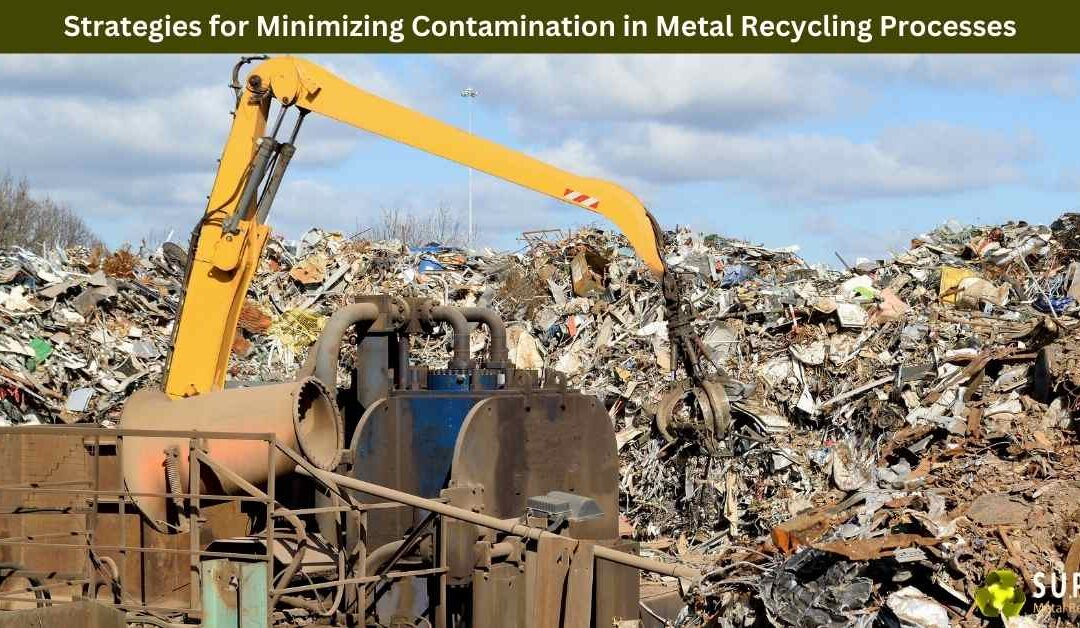Contamination in metal recycling can significantly affect the quality and value of recycled materials. It can lead to inefficiencies in processing, higher operational costs, and compromised end products. In Melbourne, Victoria, metal recycling companies are adopting various strategies to minimize contamination and ensure high-quality outputs. Here’s an in-depth look at these strategies.
1. Implementing Strict Sorting Procedures
One of the most effective ways to minimize contamination is through strict sorting procedures. Metals should be sorted by type and grade before processing. Advanced technologies like magnetic separators, eddy current separators, and sensor-based sorting systems help in accurately distinguishing between different metals and non-metallic materials. Manual inspection also plays a crucial role in ensuring that contaminants like plastic, glass, and rubber are removed.
2. Educating Suppliers and Customers
Educating suppliers and customers about the importance of proper sorting and contamination prevention is essential. Providing guidelines on how to prepare scrap metals, such as removing non-metal attachments and cleaning off oils and residues, can significantly reduce contamination levels. Recycling companies often conduct workshops and distribute informational materials to raise awareness and promote best practices.
3. Utilizing Advanced Cleaning Techniques
Advanced cleaning techniques, such as high-pressure washing, chemical treatments, and thermal cleaning, are employed to remove contaminants from scrap metals. These methods ensure that metals are free from dirt, paint, and other residues that could affect the recycling process. Implementing these techniques improves the purity and quality of the recycled materials.
4. Regular Equipment Maintenance
Regular maintenance of recycling equipment is crucial in minimizing contamination. Worn-out machinery can introduce contaminants into the recycling process, compromising the quality of the output. Ensuring that shredders, separators, and furnaces are in optimal condition helps maintain the integrity of the recycled metals.
5. Establishing Quality Control Measures
Quality control measures, such as routine inspections and testing, help in identifying and addressing contamination issues early in the recycling process. Spectrometers and other analytical tools are used to assess the composition and purity of metals. By monitoring the quality at each stage, recycling companies can ensure that the final products meet industry standards.
6. Collaborating with Industry Partners
Collaboration with industry partners, including manufacturers, suppliers, and regulatory bodies, can enhance contamination control efforts. Sharing knowledge, resources, and best practices fosters a collective approach to minimizing contamination. Industry partnerships also help in staying updated with the latest technologies and innovations in metal recycling.
Achieving Higher Purity and Efficiency
Minimizing contamination in metal recycling processes is vital for producing high-quality recycled materials and maintaining operational efficiency. Through strict sorting procedures, advanced cleaning techniques, regular equipment maintenance, and robust quality control measures, metal recycling companies in Melbourne are setting high standards for the industry. By fostering education and collaboration, these companies are contributing to a more sustainable and efficient recycling ecosystem.
If you are in Clyde, Victoria 3978, and looking for a metal recycling service, this is the best way to visit us.
Super Metal Recycling
345 Frankston – Dandenong Road, Dandenong South VIC 3175
(03) 9706 4909


Recent Comments